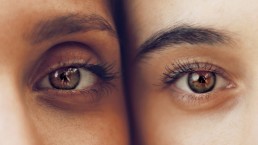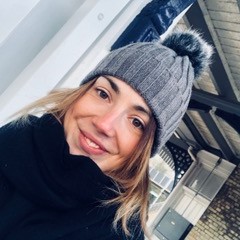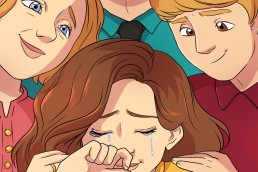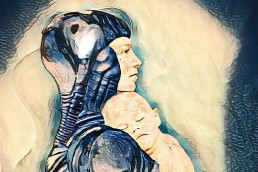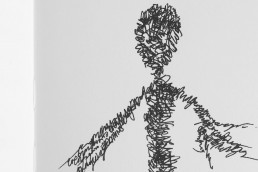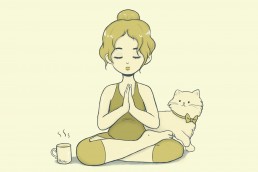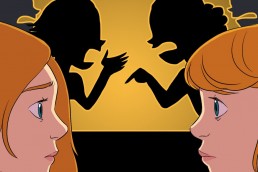By Hannah Brown
Photography by Soroush Karimi, via Unsplash
Content Warning: mentions of disordered eating
Body image is something that affects all of us, in one way or another. It doesn’t discriminate between the genders, races or ages; because everyone has a perception of their body. It’s a boggling concept; we look at our reflection and see one thing but put on a pair of trousers and suddenly we feel another. We frequently place our worth and value on that reflection, and the perception we think other people have of our bodies.
When flicking through a magazine, a newspaper, or even through Twitter, we are quite simply bombarded with commentary on what the perfect body should look like. Scrutiny is both relentless and overwhelming — we are all, at one stage or another, guilty of not only judging those around us but also of judging ourselves. We dwell on the lumps and bumps; on how our clothes sit; on a body shape that may or may not conform to ideals that we believe to be true.
I am one of those people with a distorted perception of my body that fueled an eating disorder and brought years of obsessive dieting and regulation. So pertinent was this distortion that it governed my being and continues to play havoc with my decision-making. At an age when I should have been flourishing, I took a long hard look in the mirror and fell into the belief that I needed to lose weight.
As a comfortable size 12 with everything to live for, this belief was so flawed, so untrue but yet so powerful. I looked at the magazine articles and I believed, naively of course, that the pursuit of an ideal body shape would bring me the final piece of happiness that I felt my life was missing — the cherry on top of the cake if you like.
It is so important to note, however, that I was never using images and photos of stick thin celebrities as my ‘thinspiration’, and everybody has different accounts of how my illness took hold, for me, it was a diet I believed I genuinely needed to go on. I held the belief that these women had the perfect lives and part of that perfection was achieved through their body.
It was the diet that spiralled. Hindsight is such a wonderful thing. I wish I had never have started it, let alone allowed it to spin out of control into an illness that became my whole existence.
It was the diet that spiralled. Hindsight is such a wonderful thing. I wish I had never have started it, let alone allowed it to spin out of control into an illness that became my whole existence.
So, what was my body image like at that time? Well, I guess I am a bit of an anomaly because although I couldn’t stop the relentless cycle of restriction, I also knew that I hated my body and not for the reasons you might think. As I lost more and more weight, as bones began protruding and my skin began to fade. I actually started to hate my body even more. I was embarrassed by my skeletal frame— I never looked in the mirror and saw fat— I saw exactly what everyone else saw and that was someone who was desperately unwell.
The perception of my reflection was brutal, and fairly accurate by all accounts, but I cannot explain the frustration both personally and as shown by others of looking in the mirror and hating the reflection for reasons that only I could comprehend and struggled to transpose into any sort of action. What is so confusing however is that opposing powerlessness in being able to do anything to make the changes that would have supported a healthier body and of course mind. There was a fear of gaining weight, I cannot tell you why I had this fear, I cannot explain to you why it had such a hold over me but it did, and nothing could break its evil hold.
Interestingly, during the days of self-loathing and disgust at my childlike frame, I used to look at other women with envy — I wanted to be the picture of health, radiating beauty and the same glow that they had. I was fed up of being cold, painfully thin with a body image characterised with disgust. Being skinny didn’t bring me the happiness that I thought it would, staying skinny brought me nothing but an existence that was finite and incredibly boring.
So, we might ask again, what is body image? It is the belief we have of our bodies, how we feel about that reflection and the physical experience of being in our own skin. I think one way to take control of how we see is ourselves is to try looking in the mirror; looking long and hard but not taking that stare any further than the eyes. Looking at the sparkle, and reading into the memories that those eyes have seen. Seeing the beauty, knowledge and glow from the glint of an eye. It is that glow that represents a life, and it’s not dictated by a shape, a number or a distorted perception.
Hannah Brown
As a blogger and campaigner on mental health issues, Hannah has used her experience of suffering from Anorexia to help support others through the founding of her own recovery peer support service — aneartohear.co.uk, working as a voluntary organisation. Now, working closely with NHS providers and other professionals in the field, together with schools, corporations and MPs, she continues to help others by increasing the dialogue around eating disorders and encouraging those to speak out, reaching for help that she knows they not only need but most importantly deserve.

